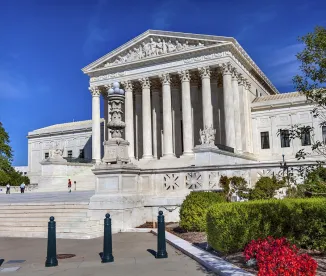A recent grant of certiorari will determine whether formality should prevail over the reality of what the trial court unquestionably knows. On June 3, 2019, the Supreme Court granted certiorari in Holguin-Hernandez v. United States, a petition brought after a criminal defendant was arrested and sentenced on drug possession charges, and then subsequently sentenced on a related revocation hearing. While Holguin-Hernandez’s counsel argued for a lighter sentence, he did not formally object after the sentence was announced. Consequently, when Holguin-Hernandez went to challenge the length of his sentence, the Fifth Circuit imposed its higher clear-error standard because he had not formallyobjected to the sentence when it was imposed. Holguin-Hernandez then appealed the Fifth’s Circuit’s decision to the Supreme Court.
The Supreme Court is asked to answer the question of whether a formal objection is necessary to invoke the lower “appellate reasonableness” standard of review as it relates to the review of a criminal defendant’s challenge to his or her sentence. In convincing the Court to take the case, the petition noted that there is a circuit split on the issue. The Fifth Circuit stands apart from the Seventh and Ninth Circuits, which do not require a post-sentence objection to trigger the reasonableness review afforded under the ordinary standard of review. The Fifth Circuit, however, is of the view that Supreme Court precedent establishing reasonableness review as the ordinary standard did not “change the imperative to preserve error.” See United States v. Peltier, 505 F.3d 389, 391–92 (5th 2007).
The formality of preservation can sometimes have dismal consequences for those who are either unaware or unconvinced of the important role it plays. Holguin-Hernandez presents the Supreme Court with a chance to more clearly define the importance of preservation in instances of criminal defendants facing potentially longer sentences — and, in a sense, whether formality should prevail over substance, or justice for that matter.
Practice Tip:
It is better to be safe than sorry. Failing to get a formal objection on the record could have dire consequences for your client, including a much more difficult standard of review, or perhaps even a refusal to review at all. Some courts do require strict formality, including courts in civil cases. For example, some courts require a formal objection to the giving of a jury instruction, even though argument was presented as to why the instruction was wrong and should not be given. It is a best practice to always be aware of that and err on the side of caution by formally objecting to adverse rulings.





 />i
/>i

